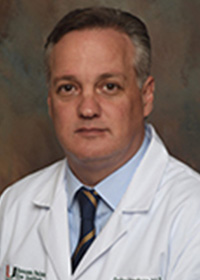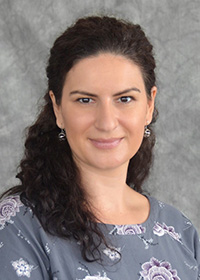Optional Session
Inherited Retinal Diseases, Visual Electrophysiology, and Gene Therapy Course
In Collaboration with the Pan-American Inherited Retinal Disease Group (PANIRD)
Tuesday, October 28, 2025
8:00 am – 4:00 pm
Location
Jasmine Ballroom, Hyatt Regency Miami
Course Director:
Carlos E. Mendoza, MD, PhD
Associate Professor of Clinical Ophthalmology
Bascom Palmer Eye Institute, University of Miami
Course Co-Directors:
Tamara Juvier, MD
Research Associate
Bascom Palmer Eye Institute, University of Miami
Maja Kostic, MD, PhD
Assistant Professor of Ophthalmology
Bascom Palmer Eye Institute, University of Miami
Guest Speakers:
Ramiro Maldonado, MD, Duke University, North Caroline, USA
Pablo Altschwager, MD, Boston Children’s Hospital, Boston, USA
Thomas Hedges, MD, Tufts University, Boston, USA
Bascom Palmer Eye Institute Faculty
Byron L. Lam, MD
Audina M. Berrocal, MD
Jesse Sengillo, MD
Registration
You do not need to be registered for Curso to register for this optional course.
If you chose to register for this optional course ONLY, you will NOT have access to the exhibit floor or other social events. Light breakfast and box lunches are included.
Registration Fee
If you are registered for Curso: US$50
Registration fee includes light breakfast and box lunch.
If you are NOT registered for Curso: US$100*
Registration fee includes light breakfast and box lunch.
*NO access to the exhibit floor or other social events
Simultaneous translation (English-Spanish) available
Course Description
Inherited retinal diseases (IRDs) are a group of genetic diseases that can lead to vision loss or complete blindness. These diseases can affect people of all ages and progress at different rates. IRDs are rare and affect approximately 1 in 1380 individuals, with 5.5 million people expected to be affected worldwide. Retinitis Pigmentosa is the most common form of IRDs, while other types include cone or cone-rod degeneration, Leber congenital amaurosis, and inherited macular dystrophies.
Recent developments in the field of IRDs warrant a comprehensive course that integrates basic concepts of clinical, electrophysiological, and molecular diagnosis. The course will cover current treatment options for these conditions, including recent developments in genetic and cellular therapies, and how to conduct clinical trials in this field.
Visual electrophysiology (VE) is a valuable tool for diagnosing retinal and optic nerve diseases, including IRDs. This course will cover VE technology's basic concepts, cellular correlation, and clinical applications. All visual electrophysiology modalities (ERG, VEP, EOG, mfERG, PERG, mfVEP) will be reviewed, followed by case presentations and discussion. Emphasis will be placed on correctly interpreting and indicating the different studies. The course also includes a hands-on session, providing participants with practical exposure to performing visual electrophysiology studies, thereby enhancing their skills and knowledge in this area.
Program
Program is subject to change
| 8:00 am | Opening Remarks Carlos E. Mendoza, MD, PhD |
| 8:05 | Round Table Understanding the Audience, Questions and Answers Carlos E. Mendoza, MD, PhD Tamara Juvier, MD |
| Session I: Basic Principles of Visual Electrophysiology
and Cellular Correlation |
|
| 8:20 | Cellular Anatomy of the Retina and Electrophysiology Correlation Carlos E. Mendoza, MD, PhD |
| 8:40 | Overview, Testing Modalities, Recording Techniques, Normal Results Carlos E. Mendoza, MD, PhD |
| 8:50 | Full-Field ERG Ramiro Maldonado, MD |
| 9:05 | Multifocal ERG Thomas Hedges, MD |
| 9:20 | Pattern ERG Tamara Juvier, MD |
| 9:35 | Pediatric Electrophysiology Pablo Altschwager, MD |
| 9:50 | EOG Tamara Juvier, MD |
| 10:00 | Flash VEP, Pattern VEP, Sweep VEP, and Multifocal VEP Carlos E. Mendoza, MD, PhD |
| 10:10 | Case Presentations Visual Electrophysiology as a Tiebreaker Tamara Juvier, MD, Carlos E. Mendoza, PhD, Thomas Hedges, MD, Byron L. Lam, MD, Maja Kostic, MD, Pablo Altschwager, MD, and Ramiro Maldonado, MD |
| 10:30 | Refreshment Break |
| Session II: Advanced Visual Electrophysiology | |
| 10:45 | How A Visual Electrophysiology Machine Actually Works Carlos E. Mendoza, MD, PhD |
| 11:00 | Methods of Acquisition and Analysis of Electrophysiological Signals Carlos E. Mendoza, MD, PhD |
| 11:15 | Setting up your Visual Electrophysiology Laboratory Checklist Tamara Juvier, MD |
| 11:30 | Artifacts in Electrophysiology. How to Detect Them and How to Avoid Them Tamara Juvier, MD |
| 11:40 | Extended Protocols: PhNR, S-Cone ERG, On-Off responses, Scotopic Response Tamara Juvier, MD |
| 12:00 pm | Full-field Stimulus Threshold (FST) Test Ramiro Maldonado, MD |
| 12:15 | How to Write a Visual Electrophysiology Test Report Ramiro Maldonado, MD |
| 12:30 | Lunch with the Experts and Discussion |
| Session III: Inherited Retinal Disease: From Clinical and Molecular Diagnosis to Gene Therapy and Clinical Trials |
|
| 1:30 | Clinical and Molecular Diagnosis of Inherited Retinal Diseases Carlos E. Mendoza, MD, PhD |
| 1:45 | IRD Mimickers Jesse Sengillo, MD |
| 2:00 | Strategies for Genetic Testing and Interpretation in IRDs Tamara Juvier, MD |
| 2:15 | Principles of Gene Therapy Carlos E. Mendoza, MD, PhD |
| 2:30 | Gene Therapy for Inherited Retinal Diseases: Surgical Considerations Audina M. Berrocal, MD |
| 2:45 | Current Clinical Trials in Inherited Retinal Diseases Byron L. Lam, MD |
| 3:05 | How to Conduct Clinical Trials for Inherited Retinal Byron L. Lam, MD |
| 3:25 | Panel Dicussion Topic: Conducting Clinical Trials Byron L. Lam, MD, Ramiro Maldonado, MD, Audina M. Berrocal, MD, Tamara Juvier, MD, Carlos E. Mendoza, MD, Pablo Altschwager, MD |
| 3:55 | Round Table Course Feedback, Questions and Answers Carlos E. Mendoza, MD, PhD |
| 4:10 | Adjourn |
| Session IV: Practical Demonstration of Visual Electrophysiology Techniques |
|
| 4:15 | Hands-on Course |
| 5:00 | Closure |


